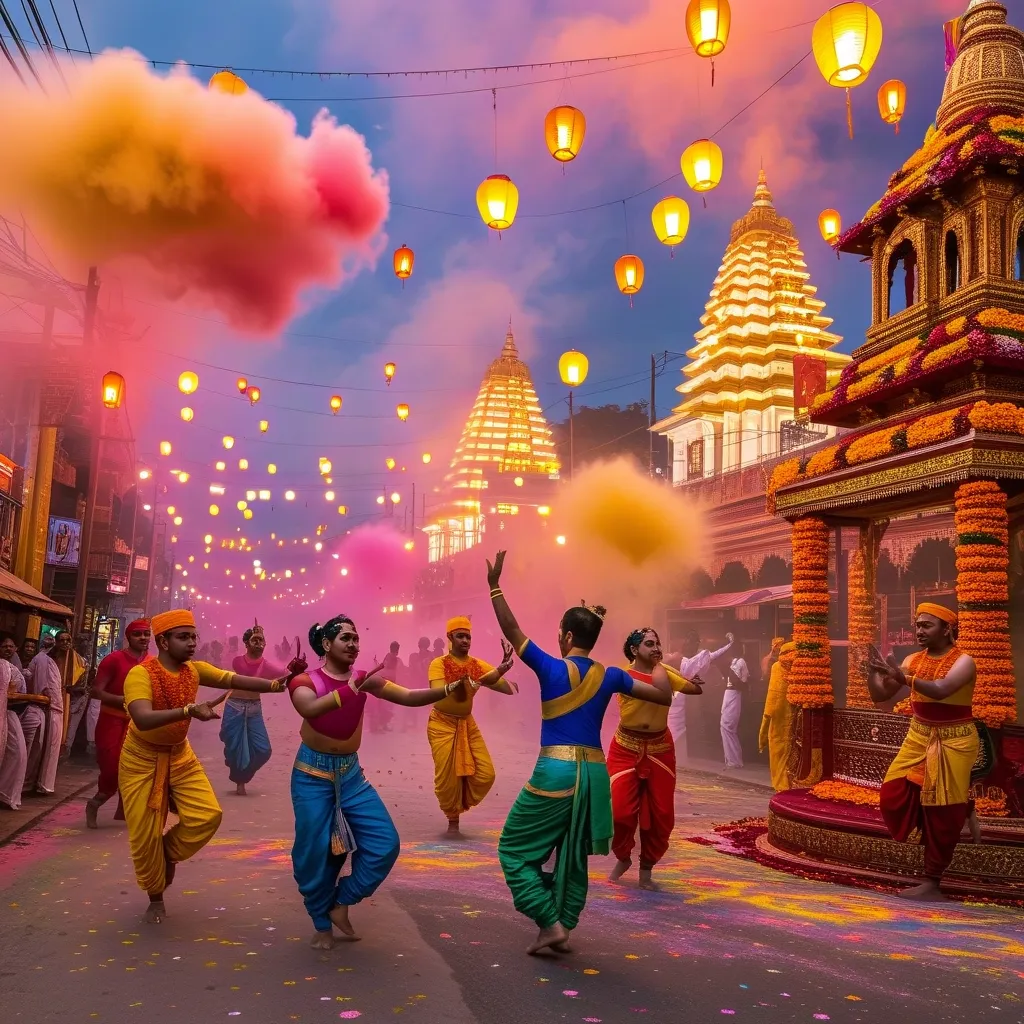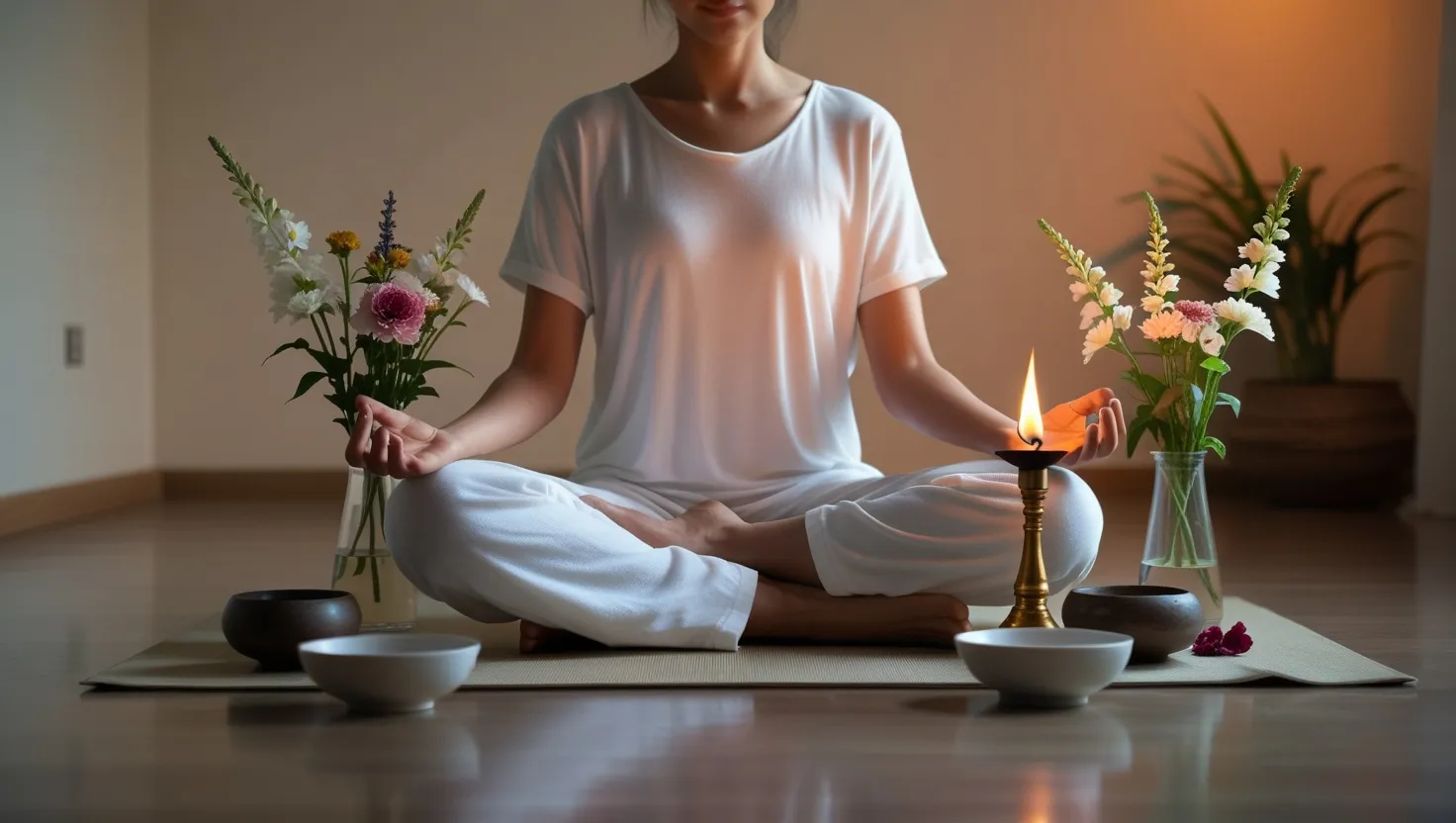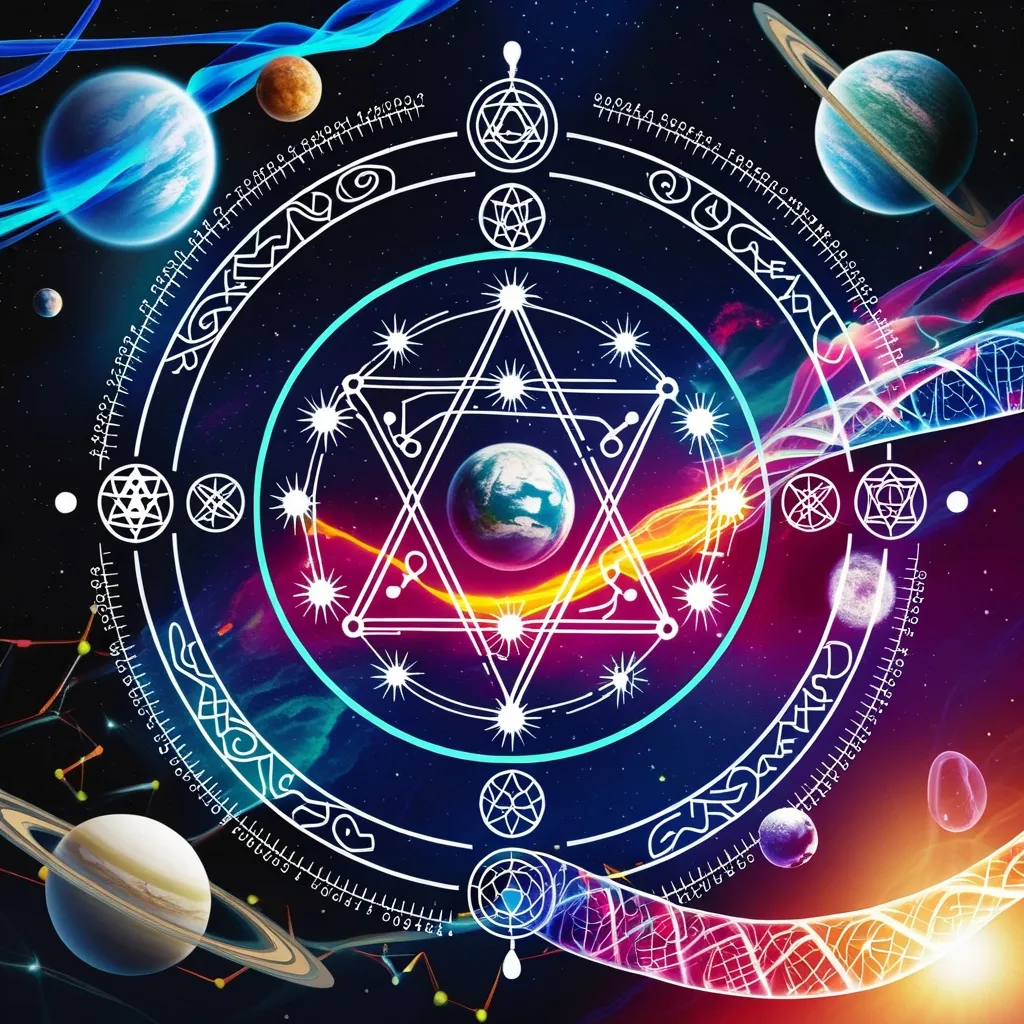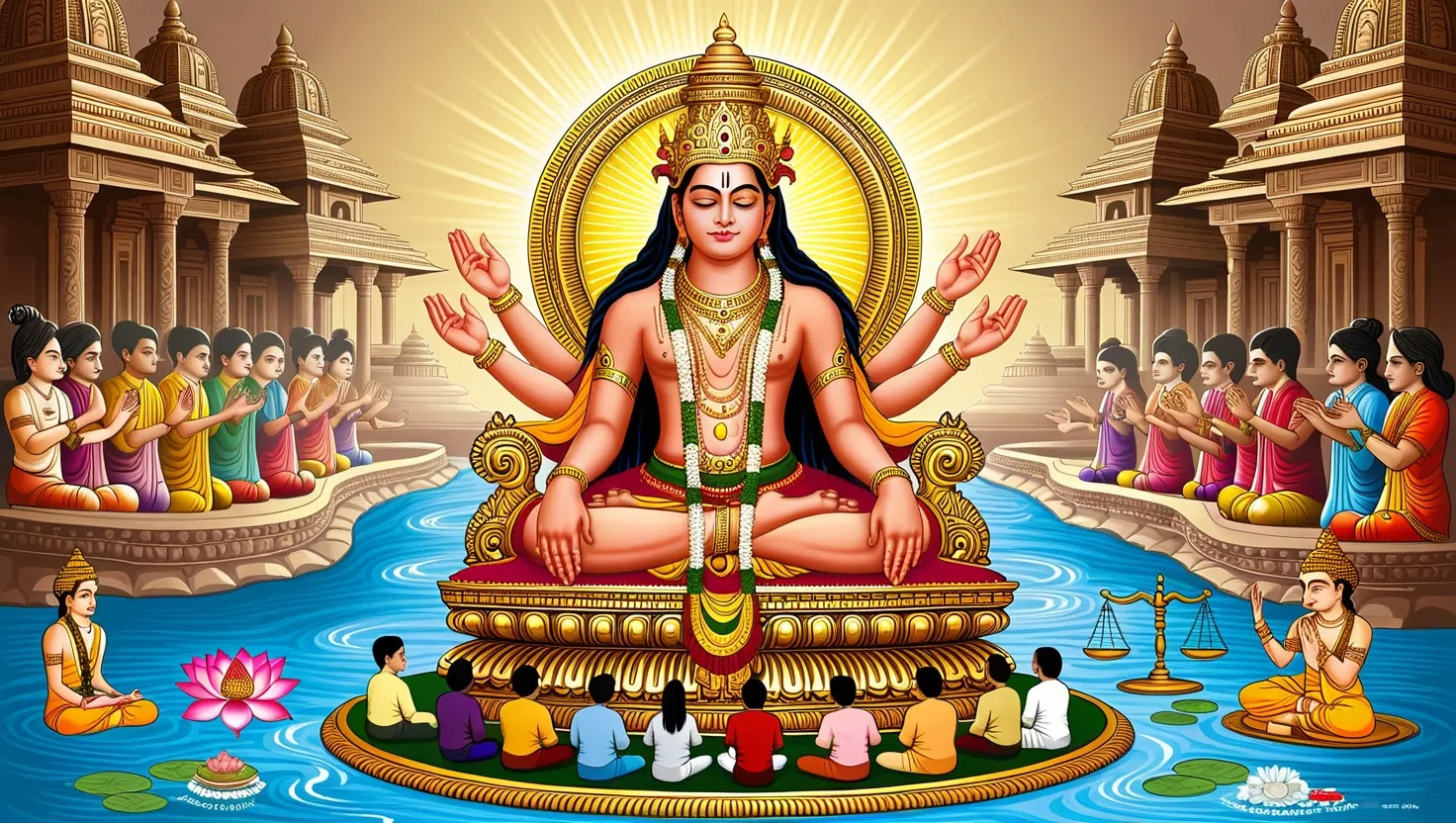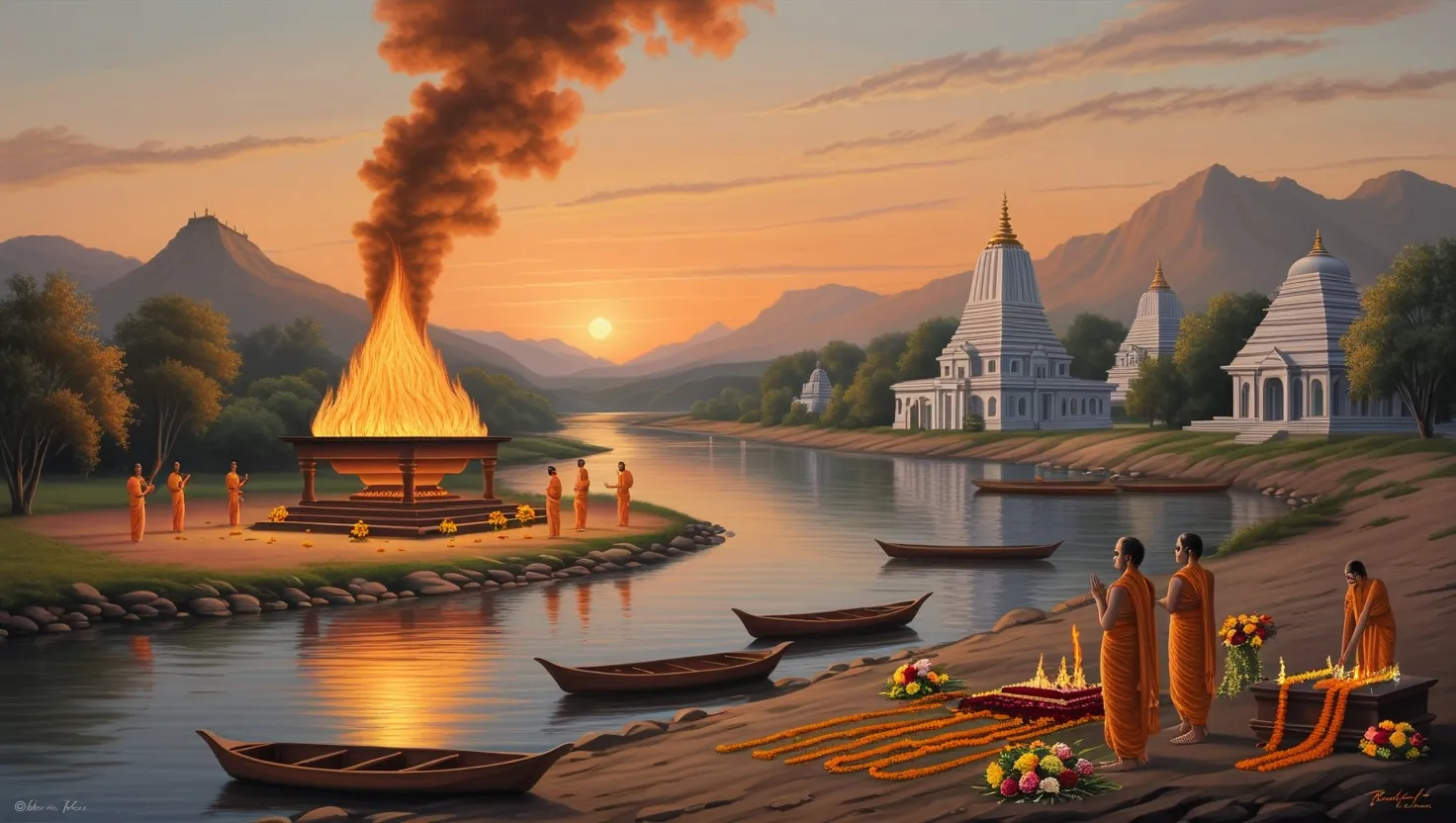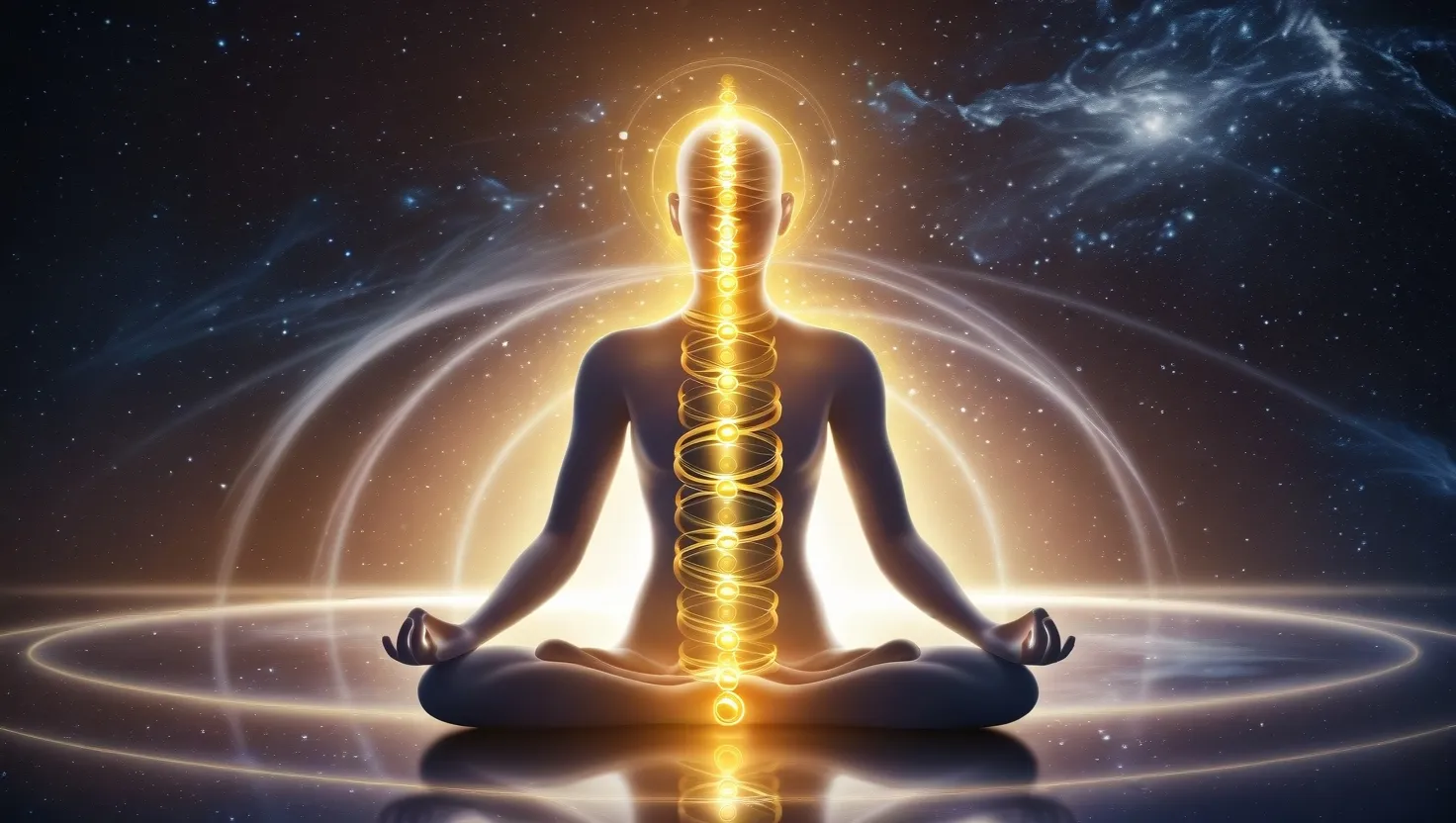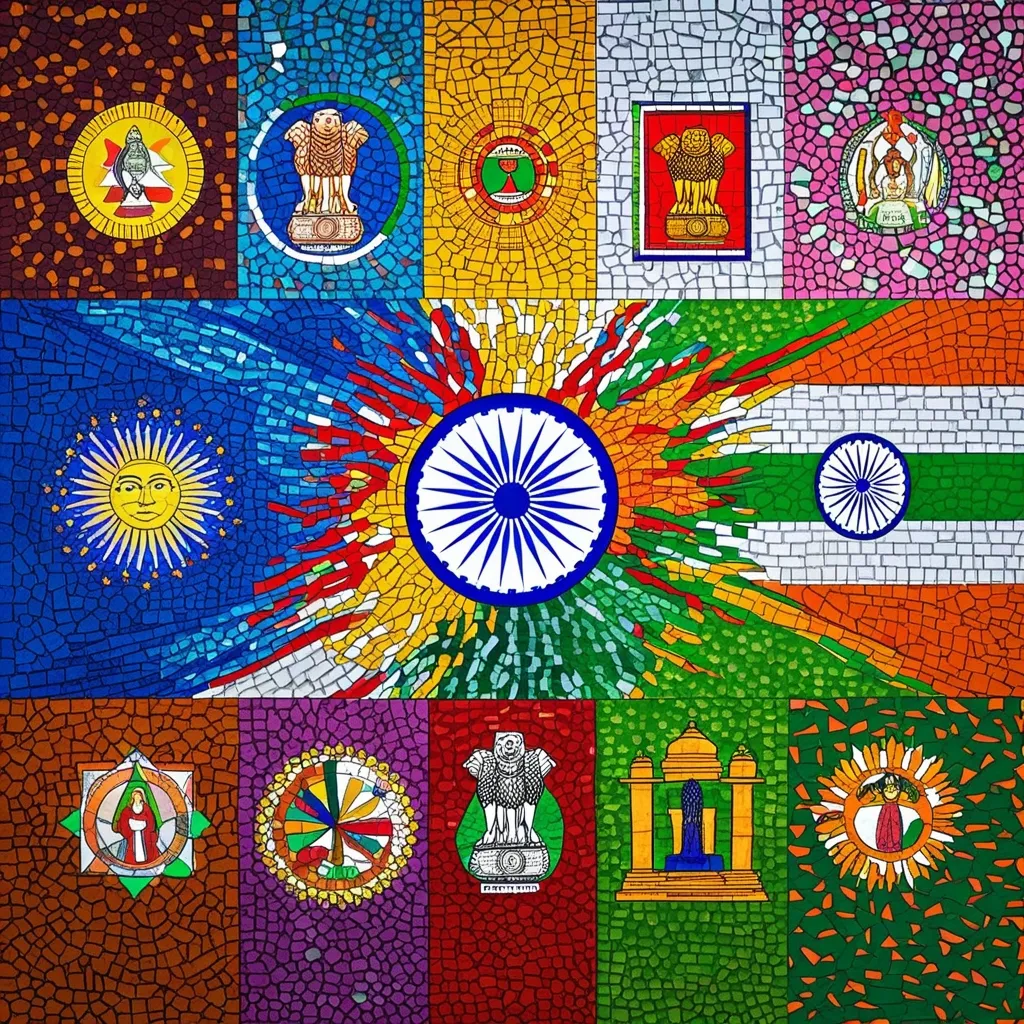Hindu festivals are a vibrant tapestry of color, spirituality, and tradition that weave through the fabric of Indian culture. These celebrations aren’t just about having a good time - they’re deeply rooted in mythology and carry profound spiritual significance for millions of people around the world.
Let’s dive into the wonderful world of Hindu festivals, starting with the granddaddy of them all - Diwali. This festival of lights is like the Hindu equivalent of Christmas, Thanksgiving, and New Year’s all rolled into one epic celebration. Picture streets lined with twinkling oil lamps, fireworks lighting up the night sky, and the mouthwatering aroma of sweets filling the air. Diwali is all about the triumph of light over darkness and good over evil. It’s a time when families come together to feast, exchange gifts, and welcome the goddess Lakshmi into their homes for some much-needed prosperity.
But Diwali is just the tip of the iceberg when it comes to Hindu festivals. Take Holi, for example. This springtime celebration is like a massive, colorful food fight minus the food. People take to the streets armed with brightly colored powders and water guns, turning entire neighborhoods into living, breathing works of art. It’s a time when social barriers break down, and everyone becomes a canvas for joy and laughter. Holi reminds us that life is meant to be lived in full color, embracing the diversity that makes our world beautiful.
Then there’s Navaratri, a nine-night festival that’s all about girl power. This celebration honors the divine feminine in all her forms, from the fierce warrior Durga to the wealth-bringing Lakshmi and the knowledge-bestowing Saraswati. It’s like a spiritual girl’s night out that lasts for more than a week. In some parts of India, people stay up all night dancing the traditional Garba, while in others, elaborate idols of the goddess are worshipped and then dramatically immersed in water.
For those who prefer their spirituality with a dash of mystery, there’s Maha Shivaratri. This nightlong vigil dedicated to Lord Shiva is like a cosmic rave where devotees stay up all night chanting, meditating, and offering prayers. It’s believed that on this night, the stars align in such a way that a person can easily attain spiritual enlightenment. Talk about a productive all-nighter!
Ganesh Chaturthi brings out everyone’s inner child as people welcome the elephant-headed god Ganesha into their homes and hearts. Clay idols of the playful deity are installed in homes and public spaces, lavished with offerings, and then bid a tearful farewell as they’re immersed in water. It’s a bittersweet celebration that reminds us of the cyclical nature of life and the importance of letting go.
Krishna Janmashtami celebrates the birth of everyone’s favorite blue-skinned god, Krishna. This festival is like a divine birthday party complete with singing, dancing, and the exciting tradition of dahi handi. Picture teams of young men forming human pyramids to reach and break a pot of yogurt suspended high above the ground. It’s part sport, part celebration, and all fun.
For those who love a good harvest festival, there’s Onam. This ten-day extravaganza in Kerala is a feast for the senses. Homes are decorated with intricate flower carpets, people don their finest clothes, and everyone indulges in the mother of all veggie feasts - the Onam Sadya. It’s a time to welcome the spirit of King Mahabali, whose reign is remembered as a golden age of prosperity and equality.
Raksha Bandhan is like Siblings Day on steroids. Sisters tie colorful threads called rakhis on their brothers’ wrists, symbolizing love and protection. In return, brothers shower their sisters with gifts and promise to always have their backs. It’s a beautiful celebration of sibling love that strengthens family bonds.
Dussehra is the festival equivalent of an epic movie finale. It marks the triumph of good over evil, commemorating Lord Rama’s victory over the demon king Ravana. In many parts of India, people burn massive effigies of Ravana, creating a spectacular visual representation of the victory of righteousness.
For those who like their festivals supersized, there’s the Maha Kumbh Mela. This mammoth gathering happens every 12 years and is considered the largest peaceful congregation of people on Earth. Millions of pilgrims flock to the banks of sacred rivers to take a dip and wash away their sins. It’s like a spiritual Woodstock, minus the mud and plus a whole lot of faith.
Last but not least, we have Makar Sankranti, a harvest festival that’s celebrated in myriad ways across India. In the north, it’s all about flying kites and having sweet treats. In the south, it’s about offering thanks for a bountiful harvest and cooking up a storm. No matter where you are, it’s a time to appreciate the sun’s journey and the cycle of seasons that sustain us all.
These festivals are more than just dates on a calendar. They’re living, breathing expressions of faith, culture, and community. They bring people together, bridging gaps and creating shared experiences that last a lifetime. From the riotous colors of Holi to the solemn spirituality of Maha Shivaratri, Hindu festivals offer something for everyone.
Each celebration is a reminder of the rich tapestry of Indian culture, weaving together ancient myths with modern-day realities. They’re a chance to step out of our everyday lives and connect with something larger than ourselves, whether that’s through prayer, feasting, or simply spending time with loved ones.
In a world that often feels divided, these festivals serve as powerful unifiers. They remind us of our shared humanity and the values that bind us together - love, family, community, and the eternal struggle between light and darkness.
So the next time you hear about a Hindu festival, don’t just think of it as another day off work. See it as an invitation to explore a rich cultural tradition, to dive into a world of color, spirituality, and joy. Whether you’re Hindu or not, these celebrations offer a chance to experience the warmth of Indian hospitality, the depth of its spirituality, and the sheer exuberance of its festive spirit.
From the twinkling lights of Diwali to the colorful chaos of Holi, from the spiritual depths of Maha Shivaratri to the familial warmth of Raksha Bandhan, Hindu festivals are a testament to the diversity and vibrancy of Indian culture. They’re a reminder that life is meant to be celebrated, that spirituality can be joyous, and that there’s always room for a little more color in our lives.
So go ahead, immerse yourself in the world of Hindu festivals. You might just find yourself swept away by the magic, the mystery, and the sheer joy of these timeless celebrations. After all, in the words of an ancient Sanskrit prayer, “May all beings everywhere be happy and free.” And what better way to spread happiness and freedom than through the universal language of celebration?
